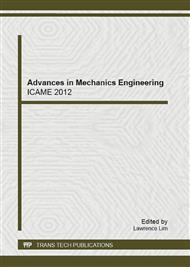p.1218
p.1222
p.1226
p.1230
p.1234
p.1238
p.1242
p.1246
p.1251
Research and Design of Portal to Integrative Data Platform for Power Dispatching System Based on Android
Abstract:
In order to expand the traditional applications on the desktop to smart phones, this paper designed a portal to integrative data platform for the power dispatching system based on android. The system releases data from Oracle database in the server of the dispatching center and lays them out, using MVC mode. And the system uses Web Service as middleware. The result proves that it is feasible and practicable.
Info:
Periodical:
Pages:
1234-1237
Citation:
Online since:
November 2012
Authors:
Price:
Сopyright:
© 2012 Trans Tech Publications Ltd. All Rights Reserved
Share:
Citation:


